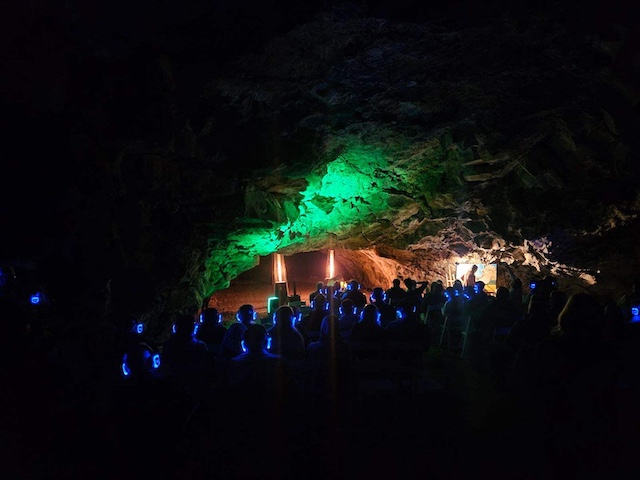Site sought for UO telescope in Central Oregon in 1963
Published 4:00 am Sunday, January 27, 2013
Compiled by Don Hoiness from archived copies of The Bulletin at the Des Chutes Historical Museum.
100 YEARS AGO
For the week ending
Jan. 26, 1913
Truant officer coming
Announcement is made on this issue by County Superintendent of Schools J.E. Myers that the law in reference to truants will be rigidly enforced after the first of the month. Prof. J.H. Shouse believes there are many children between the ages of 9 and 15 years in Bend who are not attending school as required by law. Mr. Myers states that he will send the newly appointed truant officer to Bend “on his first official visit and will do all in my power to see that delinquents in your city turn over a new leaf.”
The penalty for noncompliance with the compulsory education law is a fine of from $5 to $25 inflicted on parents of the delinquents or imprisonment in the county jail of two to ten days.
‘Gold nugget’ geese
Poultrymen around Bend might find it very profitable to raise such fowls as these, as told about in the newspaper. “For Thanksgiving dinner Mr. and Mrs. John Hall, southeast of town, killed two of their geese, and while dressing them found a nugget of gold in the craw of each.
“These proved to be valuable geese but they were yet to learn the real value of their flock, for they sold two geese to Henry Klump, Sr., for a Christmas dinner, and a gold nugget was found in the craw of each. The fowls, which seemingly had been fed on such nuggets, were sold at the regular market price, but there is one goose remaining of the flock and it remains to be seen whether its insides are a pocket of gold.”
Bill Hanley gives advice
Bill Hanley, farmer and philosopher, who is interested in so many acres of land in Central Oregon that he himself hardly knows how many, says that the greatest problem of Oregon is to get ready to take care of the immigrants who will flock to this state when the Panama Canal is opened to the world.
“I find a lot of people are worrying a good deal about what kind of a showing Oregon is going to make at the San Francisco fair,” said he. “The real thing to worry about is how are we going to take care of the large number of people of all kinds who surely are coming here. When you begin to think of that, you are getting to a subject that is big enough to keep us all working for a long time. It is Oregon’s big question, and it is going to be answered too, not by talk, but by just such work as the irrigation congress, the development leagues and the commercial clubs and chambers of commerce are doing. Cooperation is the watchword, and cooperation will solve the problem of caring for our share of the immigrants.
“Now, the thing that’s got to be done with these people who are going to come here, is to see to it that they get started right. The problem is to get them to go through the cities to the country and to get the right places. They will go if we get ready to see to them right. The cities must cooperate with the farmers, and the towns and villages must be brought into the plan, so that we will have everyone working for the great good of the masses. If we do this, which I know we will, then our problem is solved.”
75 YEARS AGO
For the week ending
Jan. 26, 1938
Basketball game is billed tonight
A traveling girls basketball team, the Red Heads, will meet the Grange basketball team here tonight at the Redmond high school gymnasium. The Red Heads, who have been traveling for several seasons, play under men’s rules and have been winning their share of games.
Another attraction of the evening will be the appearance of Helen Stephens, Olympic champion sprinter and all-around athlete. … She will appear in an exhibition race the length of the hall between halves of the game, with the players furnishing opposition.
A bottle of helium heads for Germany
The first shipment of helium ever to leave the United States, a big steel bottle of gas from the Amarillo, Texas, fields is consigned to Germany. It is part of the 17,900,000 cubic feet to be used in the new LZ-130, sister ship of the ill-fated Hindenburg. The gas is transported in 468 of these bottles aboard the German steamer Dessau, docked in Houston.
Man prevented from trying McKenzie Pass
The sheriff’s office held Edward Ballwebber of Minneapolis in custody today after he was forcibly prevented yesterday from crossing the dangerous, snow-filled McKenzie pass.
Ballwebber, who said he was on his way to eastern Oregon in search of work, was stopped by CCC enrollees about 70 miles from Eugene, a few miles west of the pass. He was held until Sheriff C.A. Swarts arrived and returned him to Eugene.
Swarts said Ballwebber failed to appreciate the dangers of crossing the pass in mid-winter.
News from Brothers
The county commissioners were out here last week, inspecting lands the county is advertising for sale.
Tom Rickman shipped two truckloads of cattle to Portland Saturday.
James Boyce went to Bend to meet his brother, who came out here from the east.
Alfred Wilson spent the week-end at the Barb-wire ranch at Hampton butte.
Len Bright went to Bend last week for medical treatment.
V.N. Dykestra has been sawing wood for Gus Grill.
Marion Shaver and David Cody are trapping.
Ben Murphy, who has a band of sheep on Bear buttes, came through here last week on his way to Stauffer, where his brother has another band.
The Bend-Burns highway is in excellent condition.
50 YEARS AGO
For the week ending
Jan. 26, 1963
UO telescope to be set up in Cascades
A 15-inch telescope that normally sits atop the Science Building on the University of Oregon campus is to be placed at some favorable site in the Cascades in the late summer of 1963 for a special study of the brightness of stars.
Dr. E.B. Ebbinghausen, U of O professor of physics, has received a $5,500 National Science Foundation grant for the study and will be in charge of the project.
Dr. Ebbinghausen was being notified today that there are several sites in the Deschutes National Forest just east of the Cascades divide that may be favorable for the projected study. Location of the observatory has not yet been chosen. It will probably be situated at a high elevation near a Forest Service lookout. The site must be accessible by road, because the weight and fragility of the scientific instrument makes “packing-in” impossible.
Cache Mountain, 5,500 feet high, is being suggested as a possible site. In the same area is Abbot Butte, 4,315 feet high. The possibility of using high Paulina Peak is also being brought to the attention of Dr. Ebbinghausen. That peak, now accessible by a road, is a lookout site and overlooks Newberry Crater. It is noted that Paulina Peak should be free of air turbulence found on or near the Cascade divide, where oceanic weather and interior dry winds intermingle.
The chief research objective will be studying the brightness of stars, particularly binary stars, pairs that are eclipsed as they circle each other and therefore display variations in brightness.
In addition to the primary research project, Dr. Ebbinghausen hopes to demonstrate that astronomical research is feasible in Oregon, particularly at high altitudes during the summer months when the air is clear and visibility is good.
Note to readers: The site chosen was Pine Mountain, southeast of Millican, and has been operating continuously for 50 years.
You don’t make jokes about Castro in Cuba
You don’t make jokes about Fidel — not on Fidel’s island.
And a Cuban comic, among the refugees who arrived in Florida Friday, said he spent two months in a Havana jail to prove it.
Leopoldo Fernandez, known as “Pototo” said he was thrown in jail during a sketch he and others were performing at Havana’s National Theater.
In the sketch, he and a group of workmen were hanging pictures of Cuban leaders on wall.
“Throw that one in the garbage,” he said when a picture of former Cuban dictator Fulgencio Batista was brought out.
“Put that one over there,” he ordered when another leader’s picture was produced.
A picture of Fidel Castro was brought in.
“I’ll hang that one myself.”
Fernandez said as soon as he said the line, militiamen jumped on the stage and dragged him off to jail. When he was released he found the National Theater had been closed.
25 YEARS AGO
For the week ending
Jan. 26, 1988
River guide carves comfortable niche
Roger Carbonne had a moral dilemma.
As a taxidermist, his business depended on hunters and fishermen who hired him to mount skins and furs from their trophy fish and game.
But as a guide on the Deschutes River, he became an advocate of the catch-and-release program, in which fishermen are not allowed to keep trout over a certain size.
Carbonne’s profession and conscience were pulling him in opposite directions — but not anymore.
Two years ago, Carbonne began carving and painting exact wooden replicas of fish released by anglers at area lakes and streams.
Now, using photos and measurements taken by the fishermen, the former Anchorage, Alaska resident, can reproduce the trophy fish down to the most minute details — including crooked jaws and scarred sides.
“I always felt that catch-and-release fishermen were doing a good thing by letting their fish live, but they never got rewarded for it,” said Carbonne.
“With (wood carved replicas), they get an affordable and permanent reminder of their fish that is always a piece of art and will always have value,” he said.
Some of Carbonne’s wooden sculptures of native trout are on display at The Patient Angler fly fishing shop on Division Street and the Sun Bird Art Gallery on Minnesota Avenue.
Carbonne also carves elaborate stream-bottom scenes, with wooden stones and carefully sculpted plants surrounding the lifelike carved fish.
The carvings are made from alder or geltounge — both extremely tight-grained woods — and Carbonne said they will last indefinitely without drying out or warping.
Last year, Carbonne entered some of his wooden fish in a world championship woodcarving contest. He finished in the top 10 and is hoping for an even better showing in this year’s competition.
“I want to be recognized for what I do,” he said. “Winning would be nice, but being recognized for putting out quality work would be compensation enough for me.”
Carbonne still does taxidermy but he intends to concentrate on carving and eventually work on nothing but wooden fish replicas.
“I don’t like killing animals to mount them, and if I never had to mount another skinned fish, bird or game head, it would be fine with me,” he said. “As a guide, I want the fish to still be swimming the day after it has been caught.”






